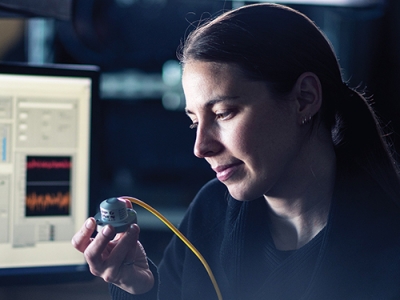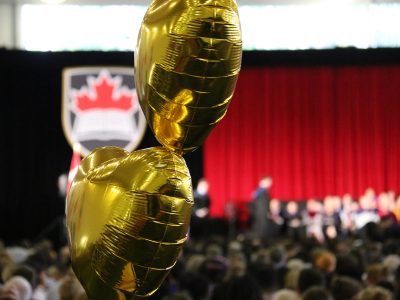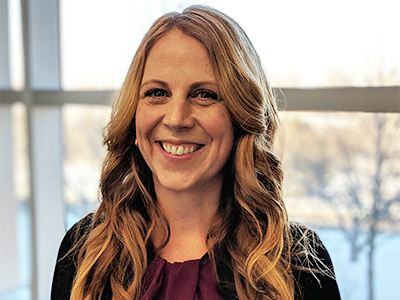By Dan Rubinstein
Photos by Fangliang Xu
From its source at Lac des Outaouais, Que., to Lake of Two Mountains just west of Montreal where it streams into the St. Lawrence, the Ottawa River flows for 1,271 kilometres.
The area it drains is nearly 150,000 square kilometres — double the size of New Brunswick and larger than a long list of countries, including Germany, Norway, Vietnam, the United Kingdom and New Zealand.
Because the river is so long and its watershed so expansive, and because it is shared by two provinces, Algonquin nations and dozens of diverse communities large and small, stewardship and management efforts are extremely complex.
An array of interconnected issues must be considered, including dams, municipal and industrial wastewater, agriculture, urban development, recreation and more.
Which is why Ottawa Riverkeeper, an Ottawa-based not-for-profit, strives to partner with scientists, communities, volunteers, businesses and all three levels of government to advocate for the watershed’s protection and health.
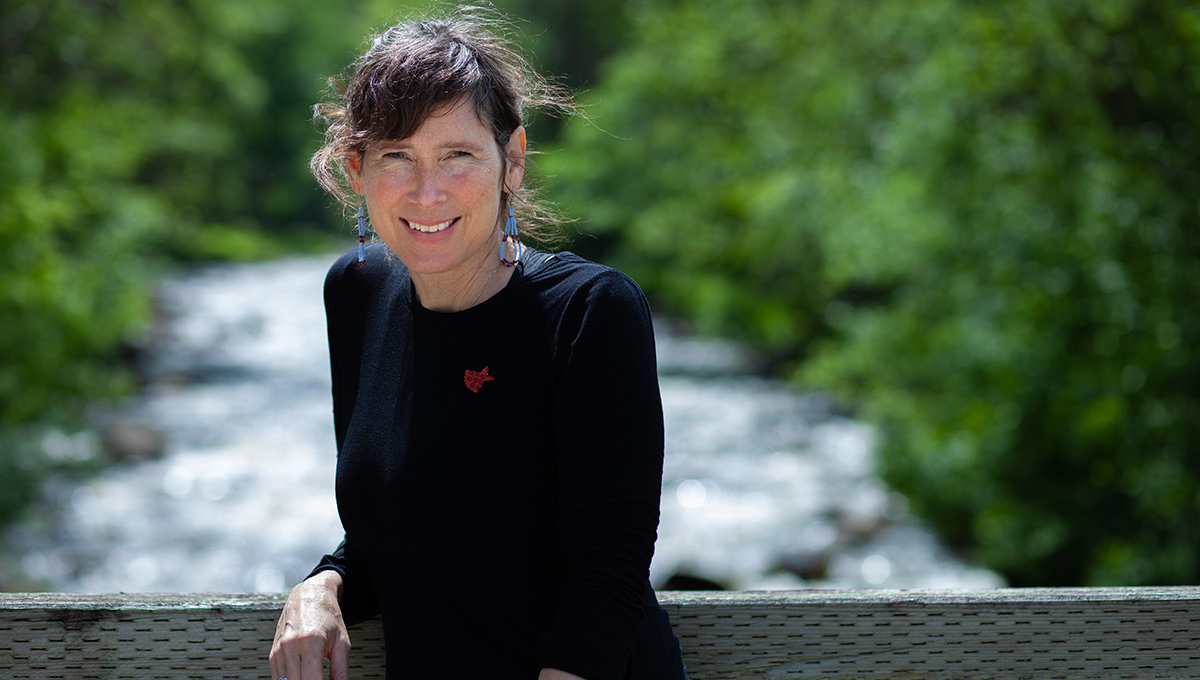
Elizabeth Logue
And it’s why Elizabeth Logue — a Carleton University graduate who has Algonquin lineage through her grandmother and connections to the Kitigan Zibi Anishinabeg First Nation near Maniwaki, Que. — left her long career as a federal public servant last September to take on the challenge of serving as the full-time Ottawa Riverkeeper.
“There is no other voice for the whole watershed,” she says.
“We look at a map and see how vast the watershed is. Then we see the dotted line that goes right through the Ottawa River dividing it into Quebec and Ontario, and it reminds us just how silly this boundary is.
“It’s not like an electronic fence that people use to keep their pets within a yard. Fish and other species don’t rebound halfway across the river!”
Logue’s decision to step away from the government, where she had worked since 1994, most recently as a director with the National Indigenous Economic Development Board at Indigenous and Northern Affairs Canada, was in part prompted by her increasing discomfort with being asked to lend policy advice to consultation processes on pipeline projects.
But there was also a significant pull — a growing desire, as her connection to her Indigenous roots deepened, and after spending nearly 20 years working on national Indigenous policy issues, to have a more direct and lasting impact on the people and places around her.
“I wanted to work for the territory, on the land right here — where I live, where my ancestors are from and the place that formed me — to make a difference here,” says Logue, who lives in Wakefield, Que., near the Gatineau River, a tributary of the Ottawa.
“It’s like I’ve come back full circle. It’s like I’ve come back home.”
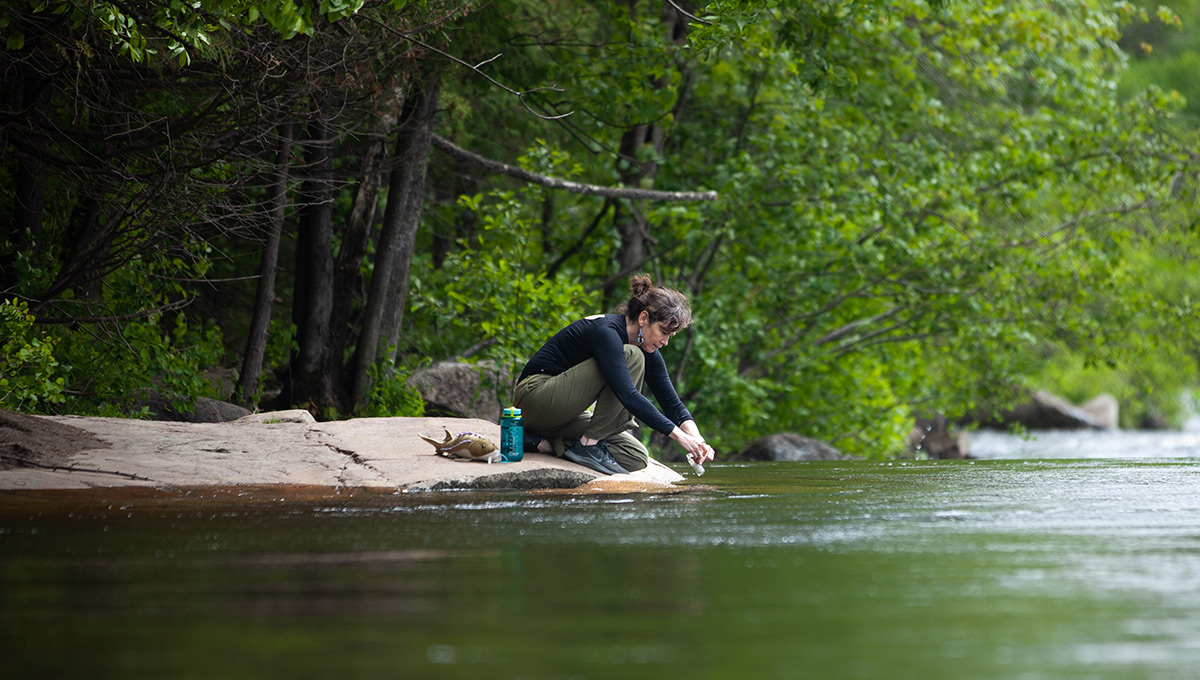
Bringing People Together for Solutions
Ottawa Riverkeeper was established in 2001 as the third Canadian member of the international Waterkeeper Alliance, an advocacy organization founded by Robert F. Kennedy Jr.
Logue is the third Riverkeeper since then, following Lara van Loon and Meredith Brown, who led the group from 2004 until the end of 2018.
The role, according to the Ottawa Riverkeeper website, is “to advocate compliance with environmental laws, respond to citizen complaints, identify problems that affect his or her body of water and recommend appropriate solutions. Waterkeepers are leaders in ensuring that communities maintain control over their local waterways when threatened by development, industrialization or toxic pollution.”
What that really boils down to, says Logue, is bringing people together to address concerns through science-based solutions, as well as community monitoring and organizing.
“It’s about solution finding at its best,” she says. “We shouldn’t have to wait for a crisis to all come together.”
It means engaging with everybody, from regular citizens to government and corporate decision-makers, collaborating with cities and towns and First Nations, raising awareness through speaking events and media and action campaigns, collecting and compiling ecological data that can be used as benchmarks, and reviewing and responding to policies and regulations in a way that draws attention to gaps and meshes with the multifaceted perspectives that the organization represents.
Over the years, Ottawa Riverkeeper has partnered power companies to develop flow and temperature monitoring initiatives at dam sites, and with local Big Rig Brewery to launch a beer (Sturgeon General IPA) as a fundraiser. “Craft breweries rely on good water,” says Logue.
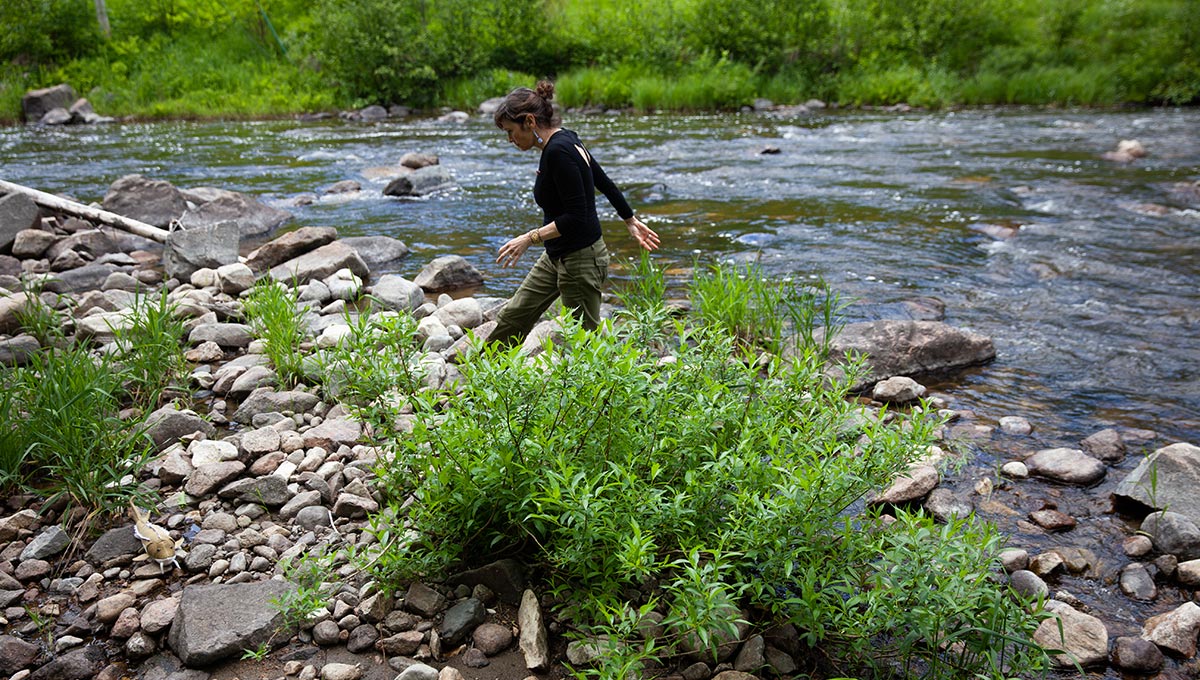
The higher profile issues that the organization has addressed in recent years include nuclear waste (the Chalk River Laboratories, a nuclear research facility, are just 200 kilometres upstream from the National Capital Region), endangered species, sewage, road salt and microplastics.
On the latter front — which focused on tiny pieces of plastic that are typically smaller than one millimetre in diameter and can be found in the form of microbeads that cosmetic companies add to personal care products as exfoliants — the organization’s work with several partners led to a national microbeads ban.
Carleton Prof. Jesse Vermaire in Geography and Environmental Studies joined the microplastics project, sampling water samples with citizen scientists and his students — one of several faculty members who have collaborated with Ottawa Riverkeeper.
“Elizabeth works tirelessly on stewardship initiatives to improve the health of the Ottawa River basin,” says Biology Prof. Steven Cooke, a fish ecology and conservation physiology expert who has also worked with the organization.
“She is incredibly effective at helping people draw connections between their actions and surface waters.”
Pre-pandemic, Ottawa Riverkeeper regularly hosted shorelines clean-ups and community meetings. Now, like everybody else, it has shifted to webinars and online networking. But the ultimate goal remains the same.
“Having people get curious about, and know and love their watershed, will help us protect it,” says Logue. “Much like a coastal community, we’re surrounded by water — the Ottawa and Gatineau and Rideau rivers and other tributaries— and sometimes we take it for granted. And people who take it for granted may not know how their decisions and the decisions of others impact watershed health.”
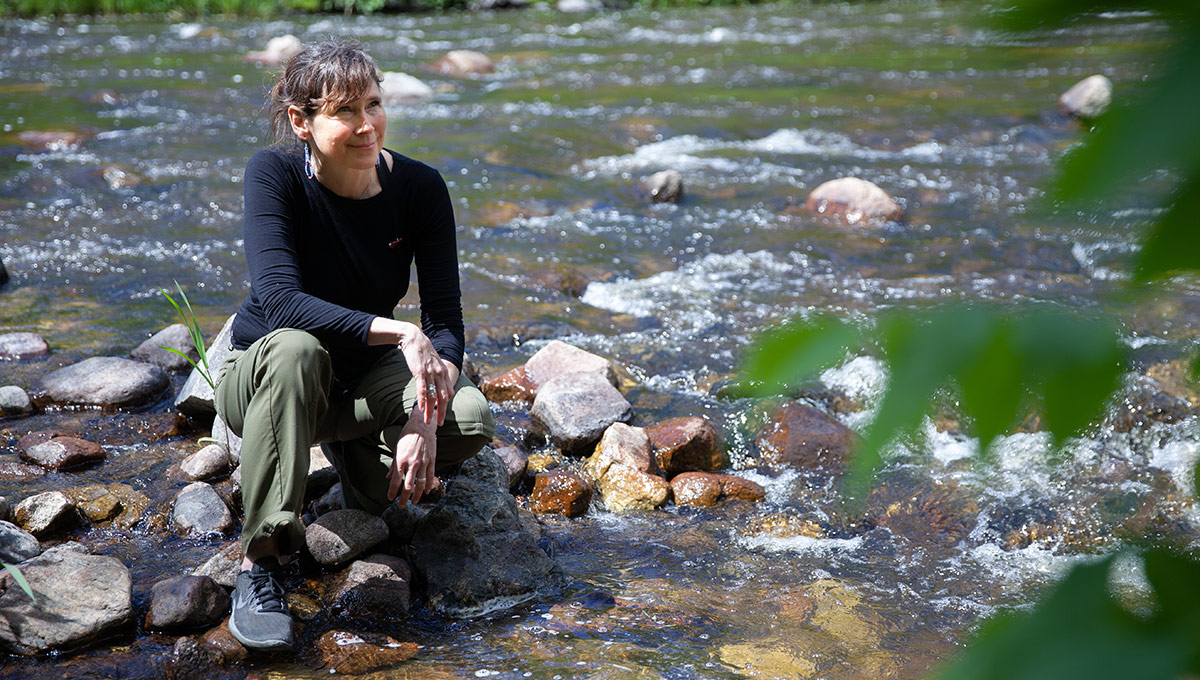
Early Indigenous Student at Carleton
Logue grew up in semi-suburban Ottawa, near the Billings Bridge area, not far from the Carleton campus, but she spent a fair bit of time with her father’s family in the Maniwaki area.
“We were a flatwater canoe family,” she says, recalling regular outings on rivers and lakes.
Her dad’s mom had grown up speaking Algonquin and yet wasn’t proud of her heritage — one of the legacies of Canada’s residential school system and racist treatment of Indigenous peoples.
“At the time, a lot of people who moved off the reserve tried to leave it behind,” says Logue.
Yet young Elizabeth was curious about that part of her family and teased out stories from her father, a slow journey of discovery that developed further while she was in high school and really took off when she started attending Carleton in the late 1980s and began working toward an English degree.
Logue played varsity volleyball at Carleton (back when the female teams were called the “Robins”) and got involved with the university’s fledgling student-led Ontario Public Interest Research Group, which organized research, education and action on social justice and environmental issues, including an effort to protect the James Bay Cree and Inuit from the flooding and pollution fallout from a massive hydroelectric dam project.
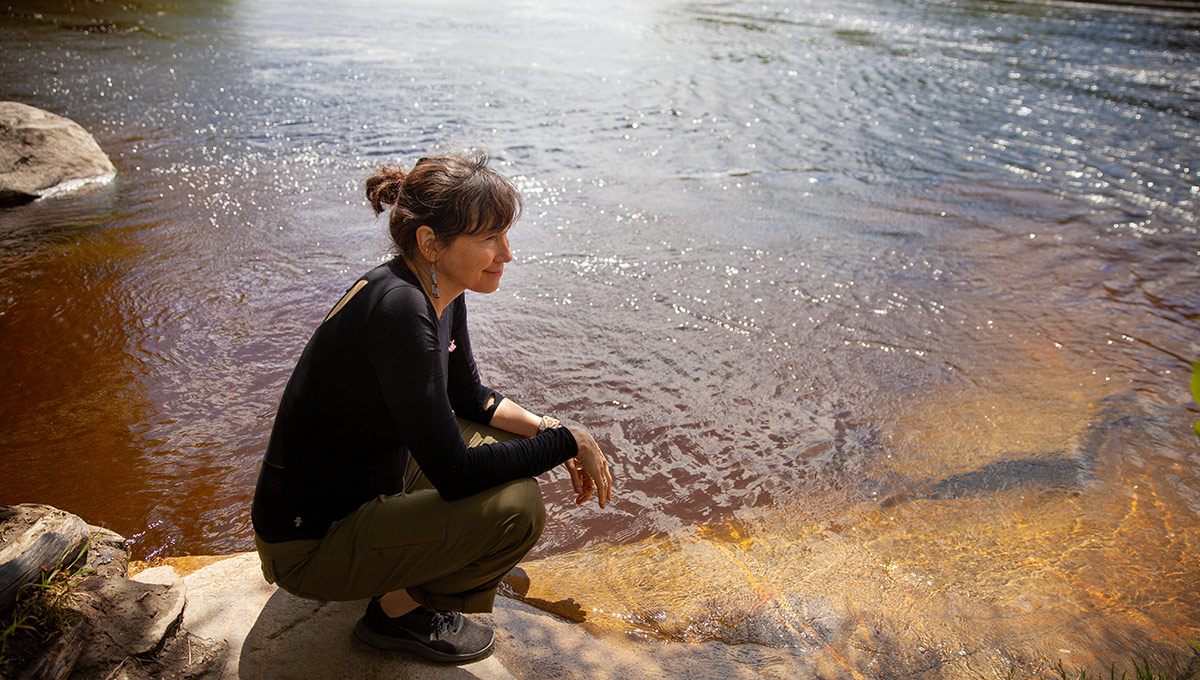
As one of a handful of Indigenous students on campus, Logue also helped start the first “Aboriginal” students’ association at Carleton. That experience, amplified by an Indigenous literature course she took, heightened her awareness of her Algonquin ancestry.
A couple years later, while on an extended two-year working and wandering trip to the Yukon, Indigenous people she met would ask: “What’s your community?”
“I realized,” says Logue, who lived beside the Yukon River for a while, “that my connection to back home, to the Gatineau River, was very strong.”
After Carleton. Logue went on to study education at McGill University, worked in theatre (she was a member of Ottawa’s A Company of Fools for many years) and has been a faculty member at the Banff Centre in the Indigenous Leadership stream.
She enjoyed her civil service posts with Indigenous and Northern Affairs Canada and in the Privy Council Office, which largely revolved around Indigenous policy development and partnerships and bringing groups together to find solutions — skills and experience that she now calls upon as the Ottawa Riverkeeper.
Logue always looked for ways to strengthen Indigenous policy and link policy development to community through her work. But when the Trans Mountain Pipeline expansion project came across her desk, she felt increasingly conflicted and uncomfortable.
Coming home to her kids at night, she wasn’t happy about her job anymore.
“I wanted to do concrete work to protect the things that people and all species depend on,” Logue says about her decision to become the Riverkeeper.
“We have the power to change things. If we don’t have clean water, what do we have?”
For information about Ottawa Riverkeeper’s annual gala, please go to riverkeepergala.com.
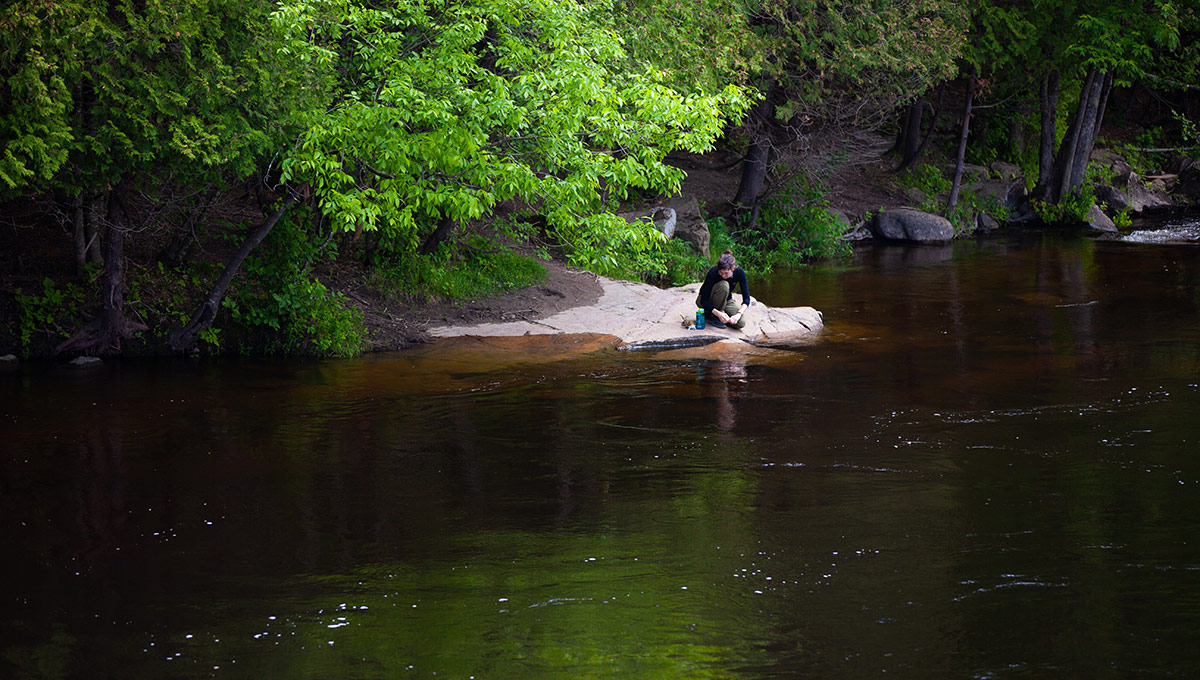
Monday, July 27, 2020 in Alumni, Environment and Sustainability, Indigenous
Share: Twitter, Facebook
